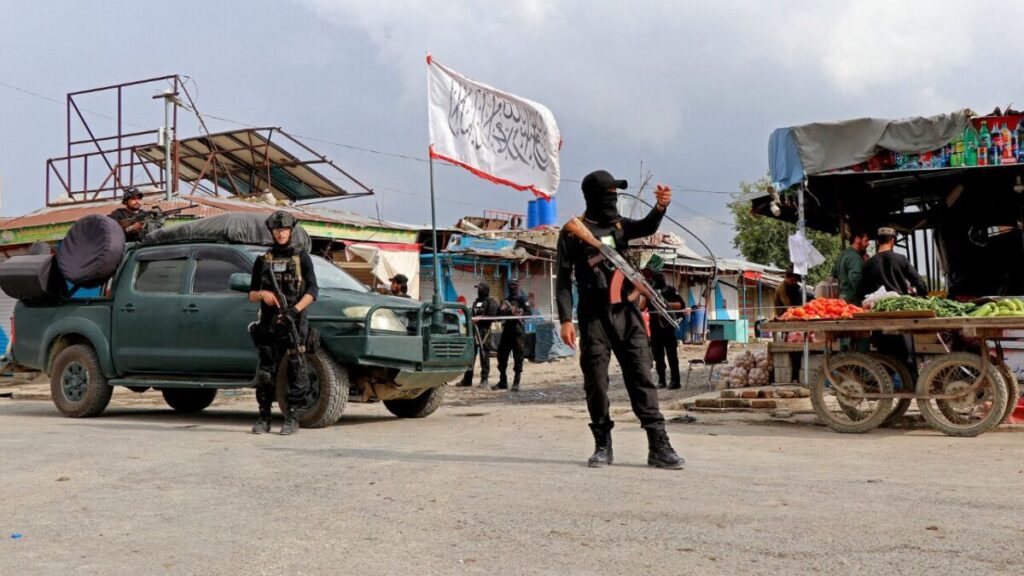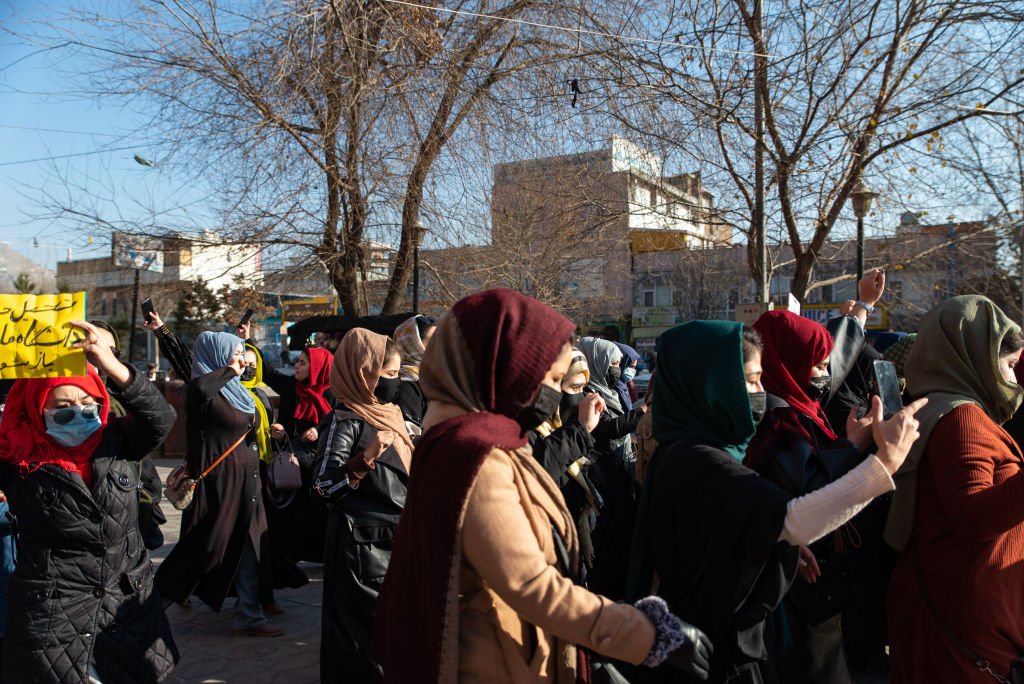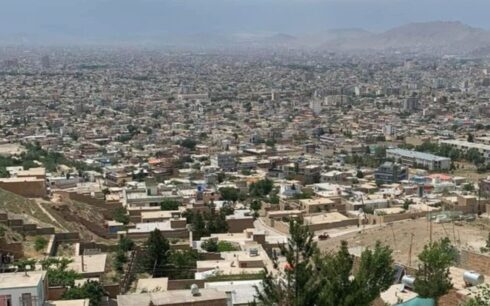KABUL, Afghanistan — Afghanistan’s human rights situation worsened in 2024 as the Taliban escalated their repression of women, girls, and minority groups, Human Rights Watch (HRW) said on Thursday in its World Report 2025.
The Taliban’s crackdown, coupled with an ongoing economic crisis, has left more than half the population in need of humanitarian aid, disproportionately affecting women and girls.
Intensified crackdowns
The 546-page report, HRW’s 35th annual review of human rights practices in over 100 countries, highlighted the severe restrictions imposed by the Taliban. According to HRW, Taliban officials detained journalists, critics, and women who did not adhere to their strict dress codes. A new law prohibited women from traveling or using public transportation without a male guardian, as well as from singing or allowing their voices to be heard outside their homes.
“In September, the Taliban banned live broadcasts of political programs, criticism of the group, and limited interviews to individuals from a preapproved list,” the report said, detailing the Taliban’s curbs on free expression.
Fereshta Abbasi, Afghanistan researcher at Human Rights Watch, called for urgent international action. “Governments should press the Taliban to end their abuses against women and girls while urgently supporting the creation of a comprehensive United Nations accountability mechanism,” she said.

Impact on minorities and security
The report also addressed attacks by the Islamic State Khorasan Province (ISKP), Afghanistan’s affiliate of ISIS, which targeted ethnic and religious minorities, particularly the Hazara, as well as Taliban forces.
“On May 18, ISKP issued a statement threatening nongovernmental organizations, the media, and foreign aid agencies,” the report noted, underscoring the group’s impact on Afghanistan’s fragile security environment.
Afghanistan’s economic crisis has further exacerbated the humanitarian situation, with 23.7 million people requiring urgent aid in 2024, including 2.9 million experiencing emergency levels of hunger. HRW urged donors to prioritize assistance aimed at reaching the most vulnerable and addressing the root causes of the economic collapse.
Global trends in repression
The report also provided a broader view of global human rights trends. In her introductory essay, HRW Executive Director Tirana Hassan criticized governments worldwide for cracking down on political opponents, activists, and journalists, while armed groups and government forces committed abuses against civilians.
“In many of the more than 70 national elections in 2024, authoritarian leaders gained ground with discriminatory rhetoric and policies,” Hassan wrote.
As Afghanistan’s crisis deepens, HRW’s report calls on the international community to ensure accountability for rights abuses and sustained humanitarian support for those in need.

Attacks on media, civil society
The Human Rights Watch report outlines the Taliban’s continued assault on freedom of expression, civil society, and the media. According to the report, the group arbitrarily detained and tortured journalists and other critics, while implementing harsh restrictions on media operations.
In September, the Taliban banned live broadcasts of political programs, prohibited criticism of their regime, and restricted interviews to individuals pre-approved by their administration. Arbitrary arrests of media workers persisted into 2024, with journalists often detained for several days without due process.
The report also highlights the plight of Afghan migrants, detailing how over 665,000 refugees were forcibly returned to Afghanistan following a campaign launched by Pakistan in late 2023. This campaign, marked by intimidation, arrests, and deportations, specifically targeted undocumented foreigners.
“Many of these individuals had lived in Pakistan for decades or were even born there,” the report states. Those who returned to Afghanistan faced severe challenges, including economic hardship, lack of housing, and limited access to education.
The HRW report also criticizes the slow pace of resettlement for Afghan asylum seekers in countries like the United States, the United Kingdom, Germany, and Canada. Thousands of Afghans who fled the Taliban remain stranded in limbo in countries such as Iran, Pakistan, Turkey, and the United Arab Emirates.





